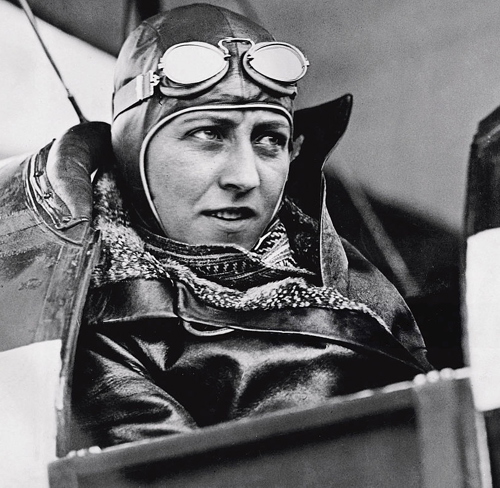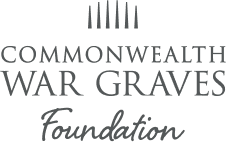08 March 2024
Spotlighting the fabulous work of the women of the Commonwealth War Graves Foundation (and the women we commemorate)
Another International Women’s Day is upon us which means it’s time to highlight the fantastic work of the women behind the Commonwealth War Graves Foundation.
International Women’s Day and the Commonwealth War Graves Foundation
We spoke to a couple of our brilliant team members to learn more about their role, their achievements and the women in Commonwealth War Graves’ care who inspire them.
First up is Laura Stoker. Laura is our Director of Fundraising.
Hi Laura! Thank you for speaking with us. Could you tell us a little bit about you and your role, please?
 I am the Director of Fundraising for the CWGF. I work to secure funds from generous donors, sponsors, Trusts and Foundations so that we can support a whole host of incredible projects that the CWGC undertakes.
I am the Director of Fundraising for the CWGF. I work to secure funds from generous donors, sponsors, Trusts and Foundations so that we can support a whole host of incredible projects that the CWGC undertakes.
I started work with the Foundation last summer, and I’ve been here for over 6 months now.
Thank you! So, what does it mean to you to work for the Commonwealth War Graves Foundation?
I first visited CWGC sites in France and Belgium when I was at school; I found the cemeteries were beautiful places to visit but I was horrified by the sheer number of graves and names on memorials.
I knew my grandad had lost his brother in WW2 (his grave is cared for by the CWGC at Dunkirk).
I have two brothers and I couldn’t imagine what he and his family had been through; what all those families went through. I studied History at University and was fascinated by the individual stories of those who died and the impact their loss had on everyone left behind.
When this role came up, I jumped at it; it’s more important than ever that we remember those lost to the senselessness of war, and that we don’t lose sight of the impact it has on everyone.
It means so much to me to be able to ensure their stories are not forgotten.
That’s really interesting, thank you for sharing. It’s always good to reflect on the family connections we have with those in our care. Speaking of casualties in our care, which of the women we commemorate inspires you?
 Image: SOE operative Violette Szabo (IWM)
Image: SOE operative Violette Szabo (IWM)
Just before I joined the Foundation, I attended the annual event at Brookwood cemetery. There I heard the story of Violette Szabo, who worked in the Special Operations Executive (SOE) during the Second World War.
During a mission in France, she was captured and imprisoned by the Nazis. She was executed in Ravensbrück concentration camp and posthumously awarded the George Cross.
Violette showed such extraordinary courage and bravery to the end; she was a truly remarkable woman. Her story is on our For Evermore portal and I would encourage everyone to learn more about her.
Very moving, thank you for sharing. What is your proudest achievement working at the Commonwealth War Graves Foundation so far?
In December last year, we held our annual Carol Service at the Royal Guards’ Chapel in London.
There are so many connections between the Chapel and the CWGC - the Chapel itself was bombed in June 1944 and had to be rebuilt.
It is a beautiful place to hold a service and it was wonderful to see how many people came to support the Foundation and the work we do.
Brilliant stuff! And, finally, what does International Women’s Day mean to you?
I have 3 young daughters so International Women’s Day is an important day for me.
I want my children to learn about the achievements of women like Violette, and to know that their stories, their accomplishments, make a difference and deserve to be heard and remembered.
Perfect. Thank you for speaking to us Laura!
Next up is Jo Musty. Jo has been with us a short while but has since established herself as an invaluable member of team CWGF.
 Hi Jo. It’s great to speak with you! Can you please tell us more about you and your role here at the Foundation?
Hi Jo. It’s great to speak with you! Can you please tell us more about you and your role here at the Foundation?
I am the Administrator for the CWGF. I work to support the Foundation Team, mainly looking after our CWGF Members and processing donations from our generous Supporters.
I started volunteering with the CWGF last Spring and moved into my role in October.
Thanks! And what does it mean to you to work for Commonwealth War Graves?
I think the work of the CWGF is extremely important, so it is an honour to work here.
A lot of us knew that our Grandparents had a role within the War/s and although many didn’t talk about their experiences there was still a connection that kept us interested.
My daughter’s generation is further removed, and it is up to us to make sure that they are educated and informed so that the stories from the past are not forgotten.
Fantastic. Do you have a proudest or stand-out moment working at the CWGF in your time here so far?
Meeting our President, The Princess Royal was a proud moment. It was lovely to see how engaged she is with the work of the CWGC and I think we are lucky to have her as our President.
Going back to the casualties in our care, are there any women we commemorate that inspire you?
I think all of the women that we commemorate to some degree should inspire us, they all had a role to play that wasn’t natural to them, whether at home in the UK taking on tasks they had never completed before, immersing themselves in another country spying on the enemy, taking to the skies to ship aircraft, that weren’t as complete as they should be; all whilst going against the societal norms put on women.
 Image: First Officer Amy Johnson CBE, a pioneer for women in the world of aviation (IWM)
Image: First Officer Amy Johnson CBE, a pioneer for women in the world of aviation (IWM)
One of my heroes will always be First Officer Amy Johnson CBE. If you search for top 10 female pilots you will likely find Amy Johnson. She was a pioneering British pilot and the first British woman to obtain a ground engineers "C" licence. Between 1930 and 1936 she broke many flying records. In May 1940 Amy Johnson joined the newly formed ATA.
In short, the Air Transport Auxiliary (ATA) pilots were civilians who were considered too old or unfit for RAF service, initially consisting only of men, in Jan 1940 they accepted their first women pilots.
One of the main roles was the ferrying of aircraft from factories and stores to front-line squadrons, they were called upon to fly any of 147 different aircraft types, often having not seen that aircraft before and the flights were often undertaken with missing instruments or radar, no radio, no maps, and no ammunition.
On the 5th January 1941, while flying an Airspeed Oxford from Prestwick, via RAF Squires Gate, to RAF Kidlington near Oxford, Johnson went off course in adverse weather conditions.
Reportedly out of fuel, she bailed out as her aircraft crashed into the Thames Estuary near Herne Bay. Due to the nature of her cross-country trip, she was ill-equipped for a sea ditching and despite a heroic attempt to rescue her, she was never found.
First Officer Amy Johnson CBE has no known grave and is commemorated on the CWGC Runnymede Memorial, panel 288.
Amy’s story is particularly great as she was definitely a female aviation pioneer! Thank you for sharing. Last but not least, what does International Women’s Day mean to you?
International Women’s Day is an opportunity to highlight the wonderful, inspirational women that we all take for granted.
It is a chance to remind ourselves and our daughters that just because we are born female that doesn’t mean it has to stop us from achieving our dreams and goals, whatever field we may be in.
Help the Foundation keep telling their stories
We believe the memories of the women who inspire our team should be kept alive. You can help us do that by supporting the Commonwealth War Graves Foundation.
Consider becoming a member today or donate to support our important work.


